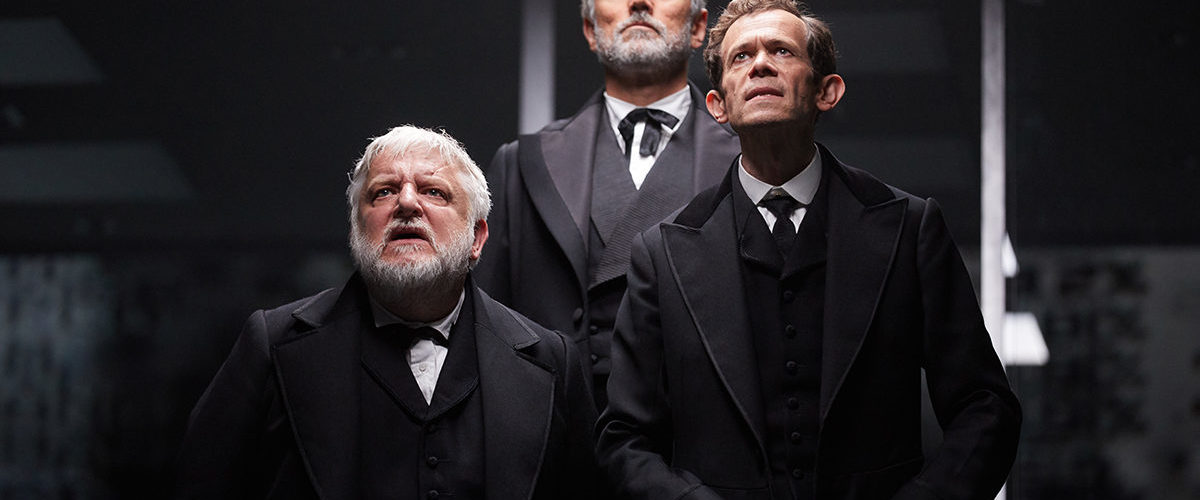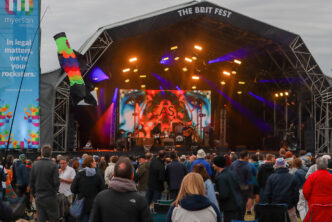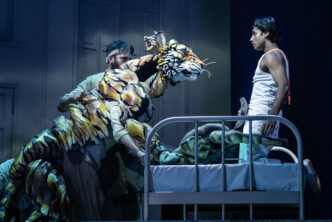It’s 10 years since National Theatre Live launched with a satellite link from National’s Lyttelton Theatre to broadcast a production of Phèdre with Helen Mirren to 70 cinemas in the UK and 200 internationally. A play on the big screen, how would that work? Well it seems very well because fast forward to 2019 and the live performances are now broadcast in 2,500 venues across 65 different territories – 700 venues in the UK alone.
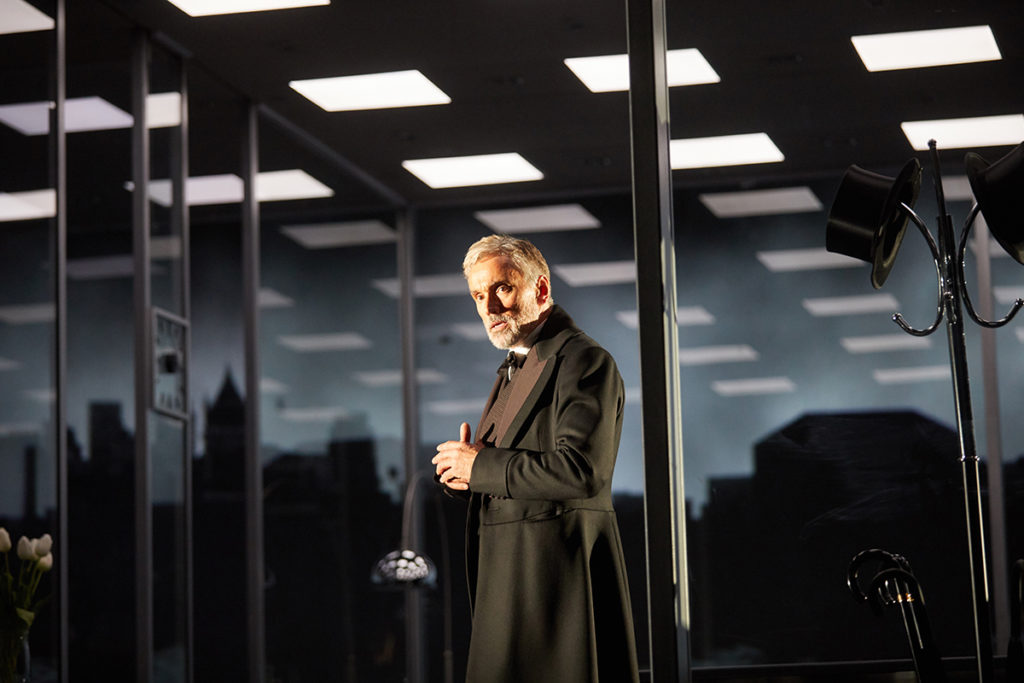
The Lehman Trilogy, screened courtesy of National Theatre Live at Home Manchester, is one of several plays broadcasting as part of the NT Live’s tenth birthday celebrations. Having never watched a play remotely before, I wasn’t entirely sure how to behave or what to expect. Very quickly those concerns (like do you clap at curtain up?) are set aside as this example of ‘theatre at its best’ casts its spell on the audience. The play is just shy of four hours in length. It has two intervals, which as it’s live is a break for those watching in cinemas too.
The play charts the private trajectory of the family behind the investment banking company, Lehman Brothers. Originally dramatised for radio by Stefano Massini, here it’s adapted for the stage by Ben Power and captures the essence of the rise of Western Capitalism; the American Dream and the intergenerational complications of the immigrant experience. Starting in 1844, the play seamlessly guides you through the American assimilation of the three Lehman brothers: Henry (Simon Russell Beale), Emanuel (Ben Miles), and Mayer (Adam Godley) – German Jews who arrive in Montgomery Alabama from Bavaria.
The brothers are, in short, penniless and gauche but endeavour to start a simple fabric business selling clothes locally. Their desire for greater wealth sees them manoeuvre themselves to becoming ‘middlemen’, essentially forgoing the rigours of manufacture or production and instead buying the raw cotton from plantation owners and selling at a profit. One plantation, two plantations … 24 plantations. The efficacy of what they do is never directly discussed, instead the focus is on the brother’s single-minded ingenuity and religious devotion to wealth creation.
The Lehman Brother’s story is told through narration and not through the tradition of dialogue – this takes a while to adjust to but works well as the rhythmic pace of the script both educates, as well as, enthrals you as the brother’s story progresses. The story follows the brothers, their sons and grandsons with Russell Beale, Miles, and Godley skilfully playing all the characters, male and female, young and old. With each turn you believe in and recognise each persona. The actors are dressed from head to toe in black (undertaker-like) suites; white shirts and the occasional prop (glasses) or a finely crafted accent – this is enough to draw you in. The piano accompaniment, provided by Candida Caldicot, feels almost like a fourth performer, with each note and bar signifying the passage of time, love, death or humour so deftly you almost forget this is a live performance.
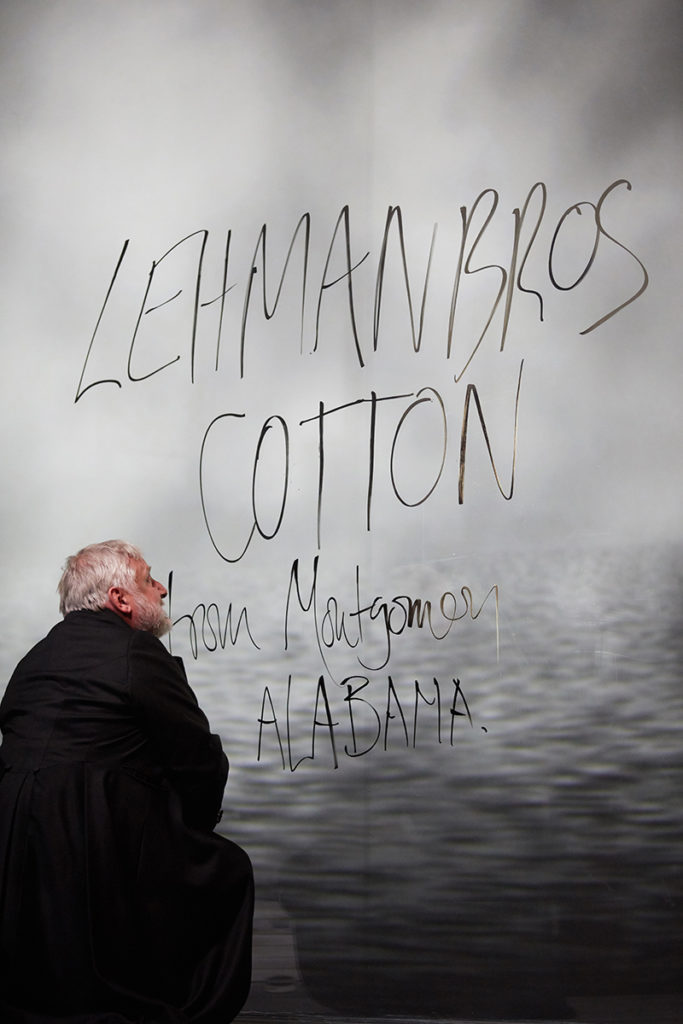
The epic scale of the tale remarkably covers three centuries and sign posts how historic events shape and affect each generation of the Lehmans, examples include the American Civil War, the Wall Street crash, culminating in the most recent financial crash of 2008, which finally saw off the bank as an independent and active entity. At each key juncture the Lehmans turn their hands to cotton selling, railway investment and later stock market investment, film, public relations and sharing trading. With each move society becomes more abstracted from the source of its wealth and the means of production. The goal is to instil a new doctrine in society – ‘buying’ is ‘winning’; buying is ‘survival’. People should no longer buy out of need – they should buy to become winners. Buy to survive; and The Lehman Brothers Bank provides the money. The oxygen.
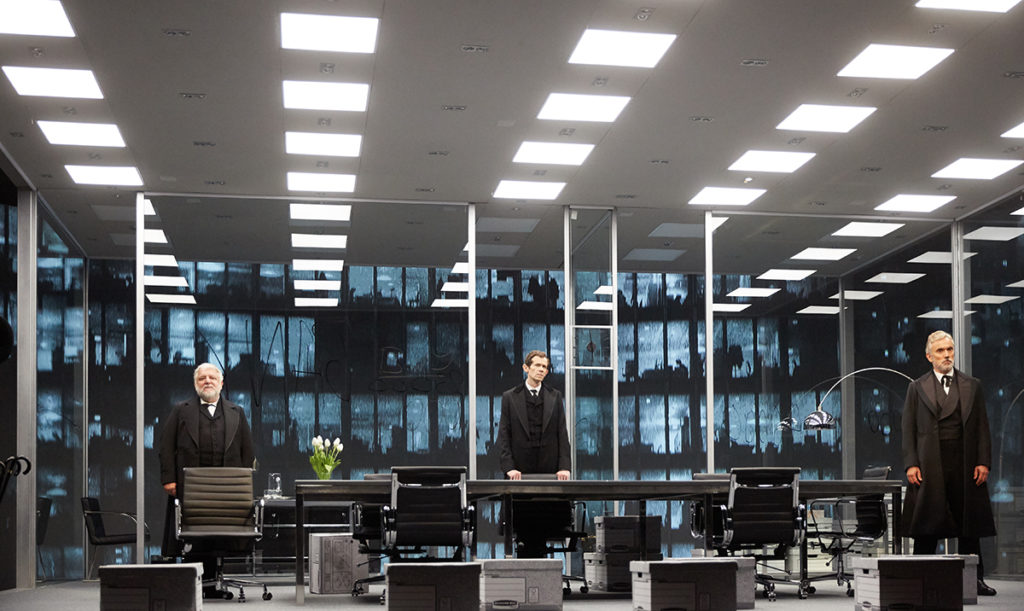
The Lehman Trilogy is wilfully directed by Academy Award-winner, Sam Mendes who makes a welcome return to theatre. The staging is a projected backdrop ahead of which a glass frame is positioned. The frame rotates when required to add to the tension and hysteria. The back projection transports the audience from plantations in Alabama to city offices in Wall Street, all of which works. Strewn across floor of the glass frame are grey cardboard boxes. These are used efficiently and become stairs, carriages and seats. No inch of the stage is wasted yet every inch is minimalist.
As each generation of Lehman Brothers becomes more American and loses more of the thread that links them to their Jewish Bavarian roots the company also transforms. While the end of Lehman Brothers’ journey is known to us, the personalities behind the company are less known. The Lehman Trilogy doesn’t seek to pass judgement, choosing instead to shine a light on a family story that’s weaved into, and influenced, how we live today.
The NT Live Screening of The Lehman Trilogy was at Home Manchester on 25 July 2019. Future NT Live Screenings at Home include Fleabag on 12 September 2019 and Hansard on 7 November 2019.
The Lehman Trilogy is at the Piccadilly Theatre in London’s West End until 31 August 2019.
Vue Manchester Printworks is running encore presentations of The Lehman Trilogy on 14 August and 3 September 2019. Encore presentations are when the live footage from the broadcast packaged and shared, unedited, with cinemas for repeat encore screening.
Nathaniel Hall contracted HIV when he lost his virginity aged 16. Fifteen years on he’s written a play, ‘First Time’ about his experience. Read our interview with him.

